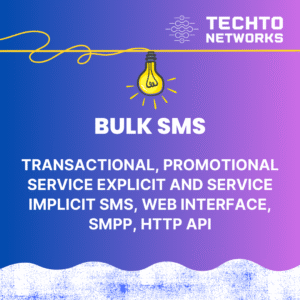
Artificial Intelligence (AI) isn’t just a buzzword anymore — it’s the driving force behind how companies innovate, operate, and compete. From automating tedious tasks to predicting customer needs, AI is reshaping every corner of the business world.
As we step into 2025, Artificial Intelligence solutions are moving from experimental to essential. Businesses that once viewed AI as a futuristic investment are now using it as a daily tool to gain an edge. But what exactly is changing? And which AI trends should companies watch closely this year?
In this article, we’ll explore the biggest ways AI is transforming businesses in 2025, the most promising trends emerging across industries, and how leaders can leverage these technologies to stay ahead.
1. The Rise of Generative AI in Everyday Operations
Remember when creating marketing copy, designing visuals, or writing code used to take hours—or even days? Those days are fading fast. Generative AI tools like ChatGPT, Midjourney, and Synthesia have gone mainstream, enabling companies to produce high-quality content, designs, and even product prototypes in minutes.
In 2025, we’re seeing Artificial Intelligence solutions take generative AI beyond creativity and into full-scale operations. For example:
- Marketing teams are using AI to personalize campaigns and A/B test thousands of ad variations instantly.
- Developers are leveraging AI coding assistants to write, debug, and optimize code faster than ever.
- Product designers can generate realistic mockups or user interfaces using natural language prompts.
The result? Greater efficiency, reduced costs, and faster go-to-market times — all without compromising quality. Businesses that integrate generative AI into their workflows are finding that innovation isn’t just quicker; it’s smarter.
2. Predictive Analytics: Turning Data into Strategy
Every company collects data, but few know how to use it effectively. That’s where AI-powered predictive analytics comes in. In 2025, these tools have become far more accurate and accessible, helping organizations anticipate market shifts, customer behavior, and operational needs.
For instance:
- Retailers use AI to forecast demand and optimize inventory levels.
- Finance teams deploy predictive models to detect fraud or predict credit risks.
- Healthcare providers analyze patient data to predict potential health issues before they arise.
By converting raw data into actionable insights, predictive AI allows businesses to make informed decisions instead of relying on gut instinct. It’s like having a data scientist working around the clock — one that never sleeps or takes a coffee break.
3. AI-Powered Customer Experiences
Customer expectations are higher than ever. People want fast, personalized, and effortless interactions — and AI is the key to delivering that.
In 2025, AI chatbots and virtual assistants are no longer limited to scripted answers. They understand context, emotion, and intent, creating human-like conversations that genuinely solve problems. Think of the difference between an old-school chatbot that says, “Please rephrase your question,” and a smart assistant that instantly resolves your issue or offers tailored recommendations.
Some examples include:
- E-commerce platforms using AI to recommend products based on browsing behavior and past purchases.
- Banks and fintech apps providing 24/7 financial advice through conversational AI.
- Travel companies offering dynamic pricing and customized itineraries powered by machine learning.
The key takeaway? Businesses that personalize the customer journey with AI are building deeper loyalty and driving more conversions — without needing massive human teams.
4. Automation Gets Smarter: AI in Business Processes
Robotic Process Automation (RPA) used to handle repetitive, rule-based tasks. But in 2025, automation has evolved into Intelligent Process Automation (IPA) — where AI combines with RPA to handle complex, decision-driven work.
For example:
- HR departments can automate resume screening, onboarding, and even employee sentiment analysis.
- Finance teams use AI to streamline invoice processing and compliance checks.
- Manufacturers monitor production lines in real time, detecting inefficiencies or maintenance issues before they happen.
By blending automation with intelligence, companies are not just cutting costs — they’re freeing up employees to focus on creative, strategic work. That’s the true power of modern Artificial Intelligence solutions: enhancing human potential rather than replacing it.
5. The Ethical and Responsible AI Movement
With great power comes great responsibility — and AI is no exception. As adoption grows, so do concerns around bias, transparency, and privacy. In 2025, businesses are realizing that ethical AI isn’t optional; it’s a competitive advantage.
Consumers now prefer brands that use AI responsibly. Regulators are enforcing stricter data protection laws. And companies are establishing internal “AI ethics boards” to ensure algorithms are fair and accountable.
Some emerging best practices include:
- Using explainable AI models that make decisions transparently.
- Regularly auditing algorithms for bias or unintended outcomes.
- Prioritizing data privacy and user consent in every AI-driven process.
Businesses that earn trust through responsible AI will not only avoid legal pitfalls but also build stronger relationships with customers.
6. Industry-Specific AI Solutions: Tailored Intelligence
Another exciting trend for 2025 is the rise of industry-specific AI solutions — customized systems built for particular sectors rather than generic tools.
Here are a few examples:
- Healthcare: AI-driven diagnostic tools that can detect early signs of diseases like cancer or Alzheimer’s.
- Retail: Smart shelf systems that automatically restock products or track customer movement patterns in stores.
- Finance: Advanced risk assessment algorithms improving loan approvals and fraud detection.
- Agriculture: AI-powered drones analyzing soil health and optimizing irrigation schedules.
These specialized applications are helping businesses not only boost performance but also address challenges unique to their industries.
7. AI and the Future Workforce
One of the biggest questions around AI has always been: Will it replace jobs? The truth is more nuanced. While AI is automating certain tasks, it’s also creating new opportunities that didn’t exist before — roles focused on training, managing, and optimizing AI systems.
In 2025, forward-thinking companies are adopting a “human + AI” approach. They’re investing in employee upskilling programs and encouraging teams to use AI tools as partners, not threats. The future of work isn’t about humans versus machines — it’s about collaboration.
Conclusion: The AI Advantage in 2025 and Beyond
Artificial Intelligence is no longer a futuristic concept — it’s today’s competitive advantage. From generative creativity and predictive insights to automation and ethical governance, Artificial Intelligence solutions are transforming how businesses think, act, and grow.
The companies that thrive in 2025 won’t just adopt AI; they’ll integrate it strategically, ethically, and intelligently into every part of their organization.
So whether you’re a startup looking to scale or an enterprise reinventing operations, now is the time to explore what AI can do for you. The future isn’t waiting — and with the right AI strategy, neither should you.
Key takeaway:
AI isn’t replacing businesses — it’s reinventing them. Companies that embrace the shift now will lead the industries of tomorrow.



